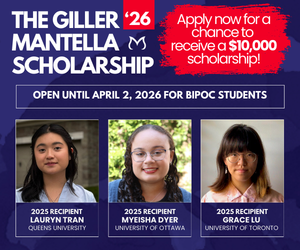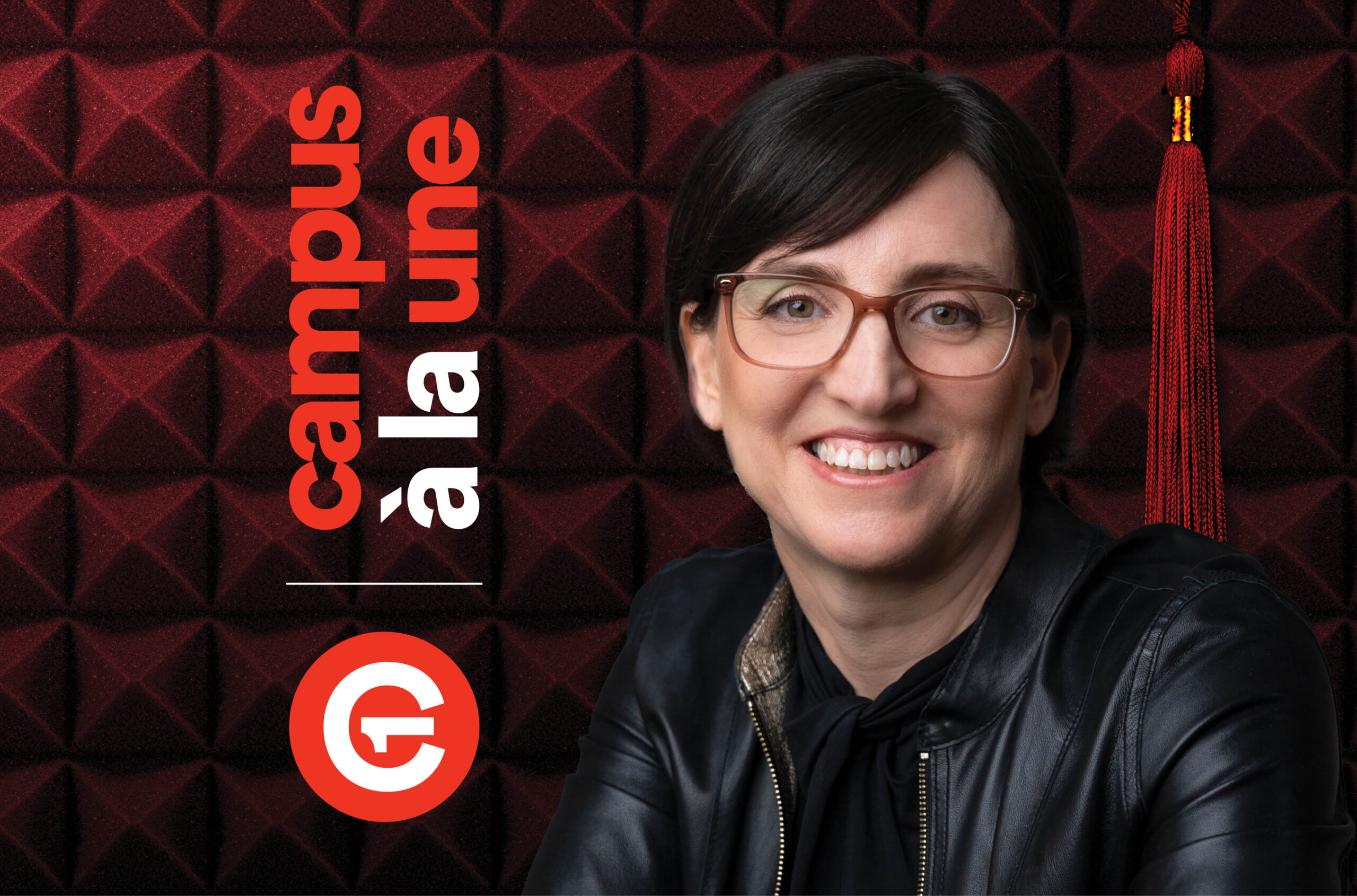The limits of graduate professional development
The gap between permanent academic positions and the number of PhD graduates.

Graduate professional development (GPD) has come a long way since it started taking shape in the late 2000s as a key feature of graduate education in Canada. Underlying much of its growth has been a simple problem with no clear solution: a drastic lack of permanent academic positions compared to the number of PhD graduates produced in Canadian universities. GPD programming now provides career support for PhD students that was often absent in the past, and it has undoubtedly aided many PhD students in preparing for the transition away from academia. The underlying problem, however, has not gone away, and neither PhD programs nor the job market show signs of adapting to accommodate the overproduction of PhDs. When it comes to facilitating career transition, have we reached the limit of what GPD can offer within the structural constraints of the university system and the Canadian job market? I pose this question as we enter a time of austerity for higher education in Canada, knowing that permanent academic jobs or postsecondary teaching positions of any kind will become increasingly scarce, and that broader economic troubles may also be on the horizon.
GPD, from the beginning, has focused on skills rather than knowledge — the latter being the domain of the various academic disciplines. A key document in the development of GPD in Canada is the 2012 report prepared by Marilyn Rose for the Social Sciences and Humanities Research Council in which she identified a need for training in transferable skills for graduate students, as well as for instruction on how graduate students can reframe their academic skills and describe them to potential employers. This focus on transferable skills and skill translation is now a key part of GPD.
The hard reality that this skills discourse continues to obscure, however, is that no student completes a PhD program for the sake of developing transferable or translatable skills. It is also not clear to what extent high-level academic skills — in critical thinking, deep analysis, knowledge synthesis, and similar — are transferable or translatable from one realm of knowledge to another, or if those gained from a PhD are that much different from those gained from a master’s degree once they are removed from a disciplinary context.
There are limits in the non-academic job market as well, which still does not demand PhDs. (The 2021 report by the Council of Canadian Academies, Degrees of Success, addressed this problem.) While PhD graduates are typically capable people who will eventually find decent work, we know that there are still few non-academic jobs that require PhDs or make full use of PhD-level academic skills. Certainly, there are none that provide opportunities for self-directed research of the scope and depth that is characteristic of academic research.
So is this it? Is this the best we can do? It may be all we can do as people working in GPD. There could, however, be something that disciplines can do by rethinking the purpose of PhD programs. By this I do not mean making PhD programs something different than what they have always been. What makes PhD programs important and worth keeping is not ultimately the skills they provide but the disciplinary knowledge they help create, preserve and transmit. PhD programs socialize students within an academic discipline and train them to be scholars. I suggest that instead of relying on GPD and the language of transferable and translatable skills to expand the definition of what PhD students can do, academic disciplines can work to expand the definition of what constitutes scholarship, who can carry it out, and where it should take place.
Will professional academic research remain an all-or-nothing career option, confined to lifelong institutional positions accessible to comparatively few PhDs, or can it be somehow distributed among the vast numbers of PhDs whose knowledge and academic skills remain chronically underutilized?
We can encourage public scholarship — as GPD programs increasingly do — but for most PhD students, any skills they develop in this field will be put to use after graduation in contexts outside of the realm of specialized disciplinary knowledge. In the end, it is up to faculty to decide how to create sustainable futures for their disciplines and how society can harness the collective disciplinary expertise of the PhDs they have trained. I can only say that GPD and the skills discourse, however crucial they are for helping PhD graduates make the best of an unfortunate situation, will not be enough. We seem to have reached a limit, and the question is where to go from here.
Featured Jobs
- Human Rights - Assistant Professor (Expertise in Peace & Conflict Studies, Socioeconomic Rights and/or Indigenous Rights)University of Winnipeg
- Soil Physics - Assistant ProfessorUniversity of Saskatchewan
- Canada Impact+ Research ChairInstitut national de la recherche scientifique (INRS)
- Director of the McGill University Division of Orthopedic Surgery and Director of the Division of Orthopedic Surgery, McGill University Health Centre (MUHC) McGill University
- Human Rights - Assistant Professor (Expertise in Human Rights related to Artificial Intelligence and Digital Security)University of Winnipeg












Post a comment
University Affairs moderates all comments according to the following guidelines. If approved, comments generally appear within one business day. We may republish particularly insightful remarks in our print edition or elsewhere.
5 Comments
I agree that a wider distribution of research opportunities (and funding) outside the academy would be beneficial.
Why can’t a PhD apply for a SSHRCC grant outside the academy? The research project itself should be what is funded on merit – we have to stop thinking of grants as propping up universities.
Great article. Three throughts.
1. Faculty members in disciplines for which there is no obvious pathway to non-academic jobs could take a first step by being very honest with prospective students about the probability of entering academia after graduation. It is sad to see faculty members taking on Ph.D. students and advising them on topics for which they know there is no Plan B and no (or almost none) academic positions.
2. Let’s not forget that there are students taking on the Ph.D. to facilitate immigration. For these students, point 1 above does not necessarily apply. (Yes, there have been changes to immigration law, but a longer program still provides a better chance to immigrate.)
3. Inform Master’s students about the placement of former Ph.D. graduates. That should serve as an eye-opener to those who think a Dr. suffix opens the door to academia.
All this said, Ph.D. applicants (and then students) are adults. They make their own choices, and Universities should not get in the way too much.
For far too long we have continued with a cycle which no longer works. Get a grant, take on PhD students, write papers, in order to get a grant, and so on. I honestly don’t believe there are many faculty who honestly consider the employment market for PhDs. Why? Because they ultimately know the truth. Only 1 in 5 PhDs end up in academia. PhD programs teach candidates to be scholars, not work in any kind of real-world scenario. Perhaps in Canada we could create something like Australia’s government research labs, CSIRO. It would provide a career entirely based on research – it’s not a perfect model, as research is often industry-funded and hence more challenging to publish. Beyond that, the sad reality if that few companies want or need PhDs. Universities need to look at better ways of graduate education, involving more industry based research, shorter degrees (perhaps following the British system which is often pure research), and ultimately taking on fewer PhDs. Because the PhD system being offered at the moment is a little bit of a lie.
Sounds like provincial governments need to require universities to shut down their PhD programs. They’re very expensive to run and not a good use of tax payer dollars.
As noted in this thoughtful article, professional development has become an integral part of many graduate programs. PhD studies however must remain a scholarly pursuit that relies on self-motivation and a strong work ethic dedicated to:
-Generating significant new knowledge based on a research interest
-Developing excellent technical and critical analysis skills
-Communicating findings effectively at conferences and in peer-reviewed journals
-Understanding the field in depth to do independent research and teach at the highest level
Indeed, PhD graduates are the next-generation guardians of disciplinary knowledge that society needs to continue to advance and prosper.